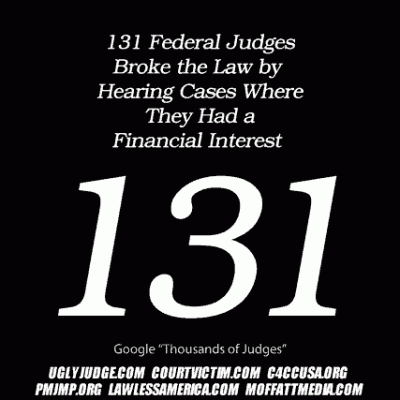131 federal judges oversaw cases involving companies in which they or their families owned stock

A Wall Street Journal investigation has found that 131 federal judges oversaw 685 court cases in the last decade involving companies in which they or their families owned stock. The conflict is a violation of U.S. law and judicial ethics, the newspaper reported. “Nothing bars judges from owning stocks,” the newspaper reported, “but federal law since 1974 has prohibited judges from hearing cases that involve a party in which they, their spouses or their minor children have a ‘legal or equitable interest, however small.’ That law and the Judicial Conference of the U.S., which is the federal courts’ policymaking body, require judges to avoid even the appearance of a conflict.” About two-thirds of the identified judges ruled in favor of their financial interests when deciding contested motions, the newspaper said. The judges were appointed by Democratic and Republican presidents. “Judges offered a variety of explanations for the violations,” the newspaper reported. “Some blamed court clerks. Some said their recusal lists had misspellings that foiled the conflict-screening software. Some pointed to trades that resulted in losses. Others said they had only nominal roles, such as confirming settlements or transferring cases to other courts, though there is no legal exemption for such work.” Some judges also said they had thought—wrongly, it turns out—that they didn’t have to recuse because stocks were held in accounts run by a money manager. The Administrative Office of the U.S. Courts released this statement: “The number of cases identified represents less than three one-hundredths of 1% of the 2.5 million civil cases filed over the period and reflects inadvertent mistakes, flaws in software and simple human error. The judiciary takes very seriously its obligations to preclude any financial conflicts of interest. We have in place a number… Read More




